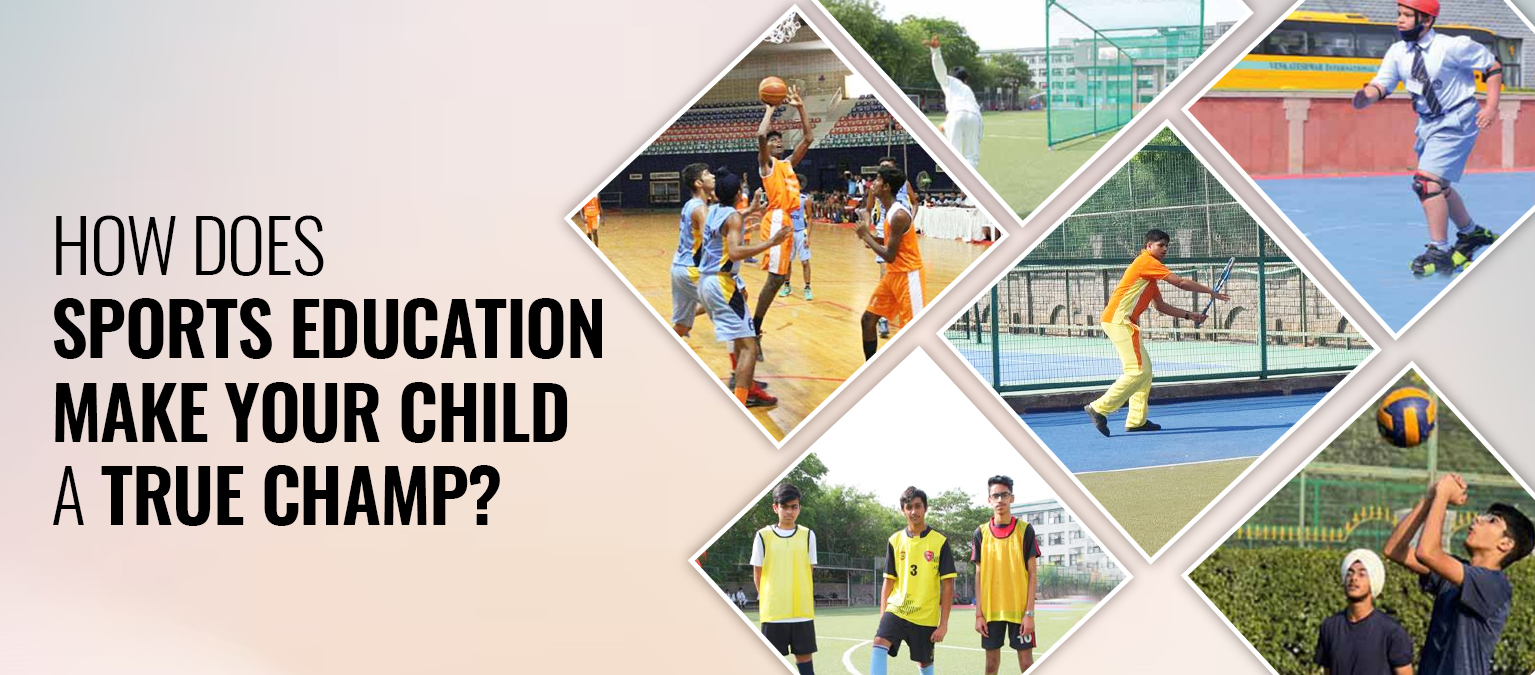How does Sports Education Make Your Child a True Champ?
Jun 05, 2023
Sports education develops champions by fostering discipline, teamwork, and perseverance, building character, and instilling valuable life skills, ensuring success on and off the field.

Sports education plays a crucial role in shaping a child's character and can help them become a true champion in various aspects of life. It provides them with physical, mental and emotional benefits that can help them excel academically and socially. Sports also promote values such as teamwork, collaboration, leadership and self-confidence.
Schools are increasingly recognizing the importance of including sports programs in their curriculum, focusing on a variety of activities to suit different interests and abilities. From team sports such as soccer or basketball to individual sports like swimming or track & field, there is something for everyone in school sporting programs.
Sports and mental health are also closely intertwined, with the participation in sports activities having a profound impact on an individual's mental well-being. Beyond physical fitness, engaging in sports can provide numerous psychological benefits, contributing to enhanced mood, reduced stress, increased self-esteem, improved social connections, and better overall mental health.
Here are some ways in which sports education can contribute to a child's development:
Physical Fitness and Health: Sports education promotes physical activity, helping children develop endurance, strength, coordination, and overall fitness. Regular participation in sports improves cardiovascular health, boosts immune function, and reduces the risk of obesity and related health issues. By instilling healthy habits early on, sports education lays the foundation for a lifetime of physical well-being.
Teamwork and Collaboration: Participating in team sports teaches children the importance of collaboration, cooperation, and teamwork. They learn how to work together towards a common goal, respect the strengths and contributions of others, and communicate effectively. These skills translate into various aeas of life, including academics, careers, and social relationships.
Discipline and Goal Setting: Sports education instills discipline and goal-setting skills in children. They learn the value of practice, perseverance, and dedication in achieving desired outcomes. Setting goals, whether individual or team-based, teaches children to prioritize, plan, and work towards achieving their objectives, fostering a sense of purpose and motivation.
Resilience and Mental Toughness: Sports education exposes children to both success and failure, teaching them how to handle setbacks, cope with pressure, and bounce back from disappointments. They learn to overcome challenges, develop resilience, and build mental toughness. These qualities are invaluable in navigating the ups and downs of life, building character, and developing a positive mindset.
Sportsmanship and Fair Play: Engaging in sports education teaches children the importance of sportsmanship and fair play. They learn to respect opponents, follow rules, and accept both victory and defeat gracefully. Sports provide a platform for children to understand the value of integrity, honesty, and ethical conduct, fostering a sense of moral values and ethics.
Time Management and Prioritization: Balancing academics and sports requires effective time management and prioritization skills. Sports education teaches children how to manage their time effectively, juggle commitments, and maintain a healthy balance between academics, sports, and other activities. These skills carry over into their academic pursuits and future professional lives.
Confidence and Self-Esteem: Participating in sports and achieving personal milestones boosts children's self-confidence and self-esteem. As they acquire new skills, improve their performance, and receive recognition, their belief in their abilities grows. This enhanced self-assurance extends beyond the sports arena, positively impacting their overall self-image and sense of self-worth.
Leadership and Decision-Making: Sports education provides opportunities for children to develop leadership skills and make decisions under pressure. Captaining a team, taking on leadership roles, and making strategic choices during games enhance their leadership capabilities and decision-making abilities. These skills are transferable to various contexts, equipping children to become effective leaders in their communities and future careers.
In conclusion, sports education offers numerous benefits that contribute to a child's holistic development. It cultivates physical fitness, fosters teamwork and collaboration, develops discipline and goal-setting skills, builds resilience and mental toughness, promotes sportsmanship and fair play, enhances time management and prioritization abilities, boosts confidence and self-esteem, nurtures leadership qualities, and equips children with valuable life skills.
From stress reduction and mood enhancement to increased self-esteem, social connections, and coping skills, sports participation offers a holistic approach to promoting positive mental well-being. By incorporating sports into their lives, individuals can experience the numerous psychological benefits, leading to a healthier and more fulfilling life. It is crucial for individuals, communities, and policymakers to recognize the importance of sports in nurturing mental health and provide opportunities for people of all ages and backgrounds to engage in sports activities. By engaging in sports education, children have the opportunity to become true champions, not just in the sports arena but also in the game of life.